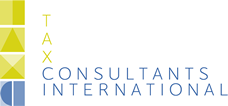Global Mobility Services International labor and cross border assignments Tax compliance
The tax treatment of a private house as the main residence
A house (ownership) which qualifies as main residence of the taxpayer and/or his/her family, is considered to be a source of income for the taxpayer. The balance of income and qualifying deductible expenses is taxed in Box 1.
On the one hand the income to be reported is a percentage of the value of the house (see below), but on the other hand it is also allowed to deduct certain expenses.
The value of the house is the taxable basis and equals the value which has been determined by the municipality on the basis of the Law on Valuation Real Estate (in Dutch: 'Wet waardering onroerende zaken' or 'WOZ').
The house owner receives a Decree or assessment for municipality taxes from the municipality in which this value is stated (in Dutch: 'WOZ-beschikking'). It is possible to file an objection against this Decree if there are valid arguments for a lower value.
The annual income to be reported as income from main residence can be calculated as follows (2023):
| With a value of more than | But no more than | The income amounts to |
| - | € 12,500 | nil |
| € 12,500 | € 25,000 | 0.10% of the value (2022: 0.15%) |
| € 25,000 | € 50,000 | 0.20% of the value (2022: 0.25%) |
| € 50,000 | € 75,000 | 0.25% of the value (2022: 0.35%) |
| € 75,000 | € 1,200,000 | 0.35% of the value (2022: 0.45%) |
| € 1,200,000 | - | € 4,200 (2022: € 5,085) plus 2.35 % of the value in excess of € 1,200,000 (€ 1,130,000 for 2022) |
Not all expenses are deductible, but the interest paid on a mortgage and certain costs for obtaining the mortgage to finance the house (usually in the year of purchase) are in essence tax deductible.
In most cases where the acquisition of a house is financed with a loan from the bank, the income from primary residence is negative, meaning that effectively a deduction is allowed on the income in Box 1. If a positive amount arises, an equivalent amount is deducted based on the non-existing debt on home ownership. This means that the income from home ownership ultimately amounts to at least € nil (or a negative amount).
For most people in the Netherlands (in particular those who only receive income from employment) the tax deduction of mortgage expenses results in a tax refund. This tax refund can be applied for in advance so that monthly tax refunds are received during the year (in Dutch: 'voorlopige teruggaaf') or will occur at once when the assessment is levied on the basis of the annual income tax return filed.


.png)



